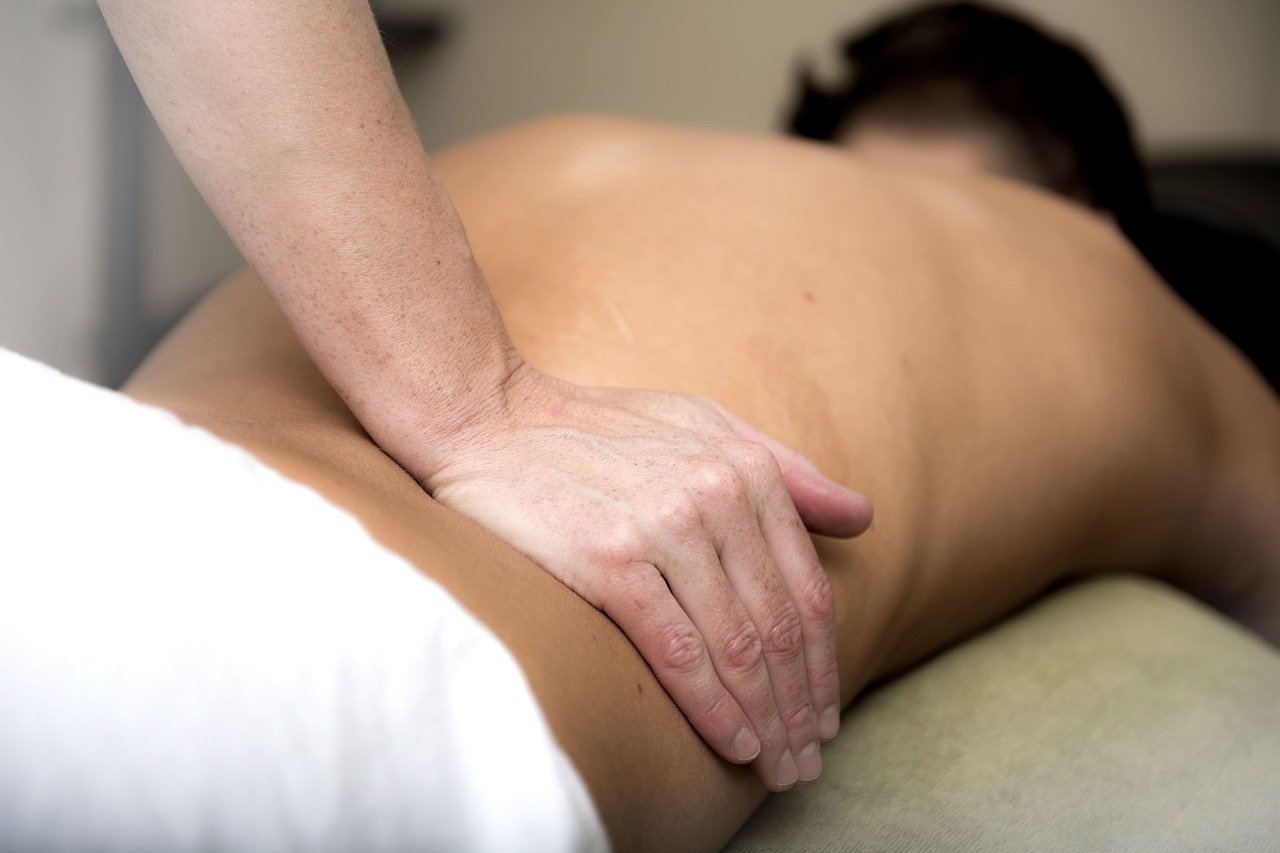
mASSAGE THERAPY FOR FIBROMYALGIA
SOOTHING PAIN & TENSION RELIEF FOR FIBROMYALGIA.
What is fIBROMYALGIA?
Fibromyalgia is a chronic condition characterized by widespread musculoskeletal pain, fatigue, and tenderness in localized areas. This disorder affects millions of people worldwide, and while its exact cause remains unknown, researchers believe that a combination of genetic, environmental, and psychological factors may contribute to its development. Living with fibromyalgia can significantly impact one's quality of life, making daily tasks challenging and causing emotional distress.
Massage can be an effective relief for some of the pain, fatigue & tenderness you might be experiencing if you have fibromyalgia. There are many ways we can approach your sessions and we endeavour to give you the relief you are seeking.
Diagnosing Fibromyalgia
Diagnosing fibromyalgia can be a complex process, as its symptoms often mimic those of other conditions. There is no specific test for fibromyalgia; instead, healthcare providers typically rely on a combination of medical history, physical examination, and, in some cases, laboratory tests to rule out other potential causes of the symptoms. To receive a diagnosis of fibromyalgia, a person must experience widespread pain for at least three months and have a certain number of tender points on the body.
It’s important to understand, massage therapists do not diagnose physical conditions, however if you do have a diagnosis and are able to receive treatment, we can absolutely work with your specific situation. As a whole, all of us at CloudForm would love to reduce or remove your pain & tension entirely.
Symptoms of Fibromyalgia
The primary symptom of fibromyalgia is chronic, widespread pain that is often accompanied by other symptoms, such as:
Fatigue: Individuals with fibromyalgia frequently experience persistent fatigue, even after a full night's sleep.
Sleep disturbances: Sleep problems, including difficulty falling asleep, staying asleep, or experiencing restorative sleep, are common in people with fibromyalgia.
Cognitive difficulties: Many people with fibromyalgia report "fibro fog," characterized by difficulty concentrating, memory lapses, and slowed thinking.
Joint stiffness: Stiffness, particularly in the morning, can affect joints throughout the body.
Headaches: Frequent headaches or migraines may be experienced by individuals with fibromyalgia.
Irritable bowel syndrome (IBS): Gastrointestinal issues, such as abdominal pain, bloating, and constipation or diarrhea, often accompany fibromyalgia.
Mood disorders: Depression and anxiety are commonly reported among those with fibromyalgia.
It's important to note that fibromyalgia symptoms can vary from person to person and may change over time, making diagnosis and treatment challenging.
How does massage help with fibromyalgia?
Massage therapy is a popular complementary treatment option for individuals with fibromyalgia, as it offers numerous potential benefits, such as:
Reduced muscle stiffness: Massage therapy can help relax tight muscles and improve range of motion, reducing stiffness and discomfort associated with fibromyalgia.
Improved sleep: By promoting relaxation and reducing pain, massage therapy can help improve sleep quality for those struggling with fibromyalgia-related sleep disturbances.
Reduced anxiety and depression: Massage therapy has been shown to decrease cortisol levels and increase serotonin and dopamine production, which can help alleviate anxiety and depression often associated with fibromyalgia.
Enhanced circulation: Massage helps stimulate blood flow, providing oxygen and nutrients to the muscles and tissues, which can be beneficial for fibromyalgia sufferers.
Increased energy: By reducing pain and fatigue, massage therapy can help improve overall energy levels in individuals with fibromyalgia.
What Massage Techniques are used for Bursitis pain Relief?
At CloudForm Massage, our skilled massage therapists are trained in a variety of techniques that can be tailored to address the unique needs of individuals with fibromyalgia. Some of the massage modalities that may be particularly beneficial for fibromyalgia sufferers include:
Swedish massage: This gentle, relaxing massage technique uses long, flowing strokes to alleviate muscle tension and promote relaxation. It can be particularly helpful for reducing fibromyalgia-related pain and stiffness.
Deep tissue massage: While not recommended for all fibromyalgia sufferers, deep tissue massage can be beneficial for those with chronic muscle tension and tightness. This technique uses slow, deep pressure to release adhesions and knots in the muscles and connective tissues.
Myofascial release: This technique focuses on releasing tension and restrictions within the fascia, the connective tissue that surrounds and supports the muscles. Myofascial release can help improve flexibility and reduce pain in fibromyalgia patients.
Trigger point therapy: By applying targeted pressure to specific "trigger points" in the muscles, this technique can help alleviate localized pain and muscle tension associated with fibromyalgia.
Customized Treatments for fibromyalgia
When scheduling a massage appointment at CloudForm Massage, it's important to inform our staff of your fibromyalgia diagnosis so that we can pair you with a therapist who is experienced in treating this condition. During your appointment, be sure to communicate your preferences and needs to your therapist, including any areas of particular pain or sensitivity, as well as your desired pressure level. Our therapists will work with you to develop a customized treatment plan that addresses your specific symptoms and concerns.
Long-term Benefits of Massage Therapy for fibromyalgia Management
There are many great benefits that regular massage & massage therapy can provide if you’re experiencing some of the pain and tension associated with fibromyalgia. Here are a few benefits to look forward to;
Pain reduction: Regular remedial massage can help to alleviate chronic pain associated with fibromyalgia by relaxing tense muscles, reducing muscle stiffness, and promoting better circulation.
Improved sleep quality: Many individuals with fibromyalgia suffer from sleep disturbances. Remedial massage can promote relaxation and reduce stress, leading to improved sleep quality and a better-rested feeling.
Enhanced range of motion: Remedial massage can help to improve flexibility and range of motion by targeting tight muscles, fascia, and connective tissue, which can be particularly beneficial for individuals with fibromyalgia who often experience stiffness and limited mobility.
Reduced stress and anxiety: The soothing and calming effects of remedial massage can help to lower stress and anxiety levels, which can be especially beneficial for those with fibromyalgia, as stress can exacerbate symptoms.
Improved mental and emotional well-being: Regular remedial massage can promote relaxation and stress relief, contributing to improved mental and emotional health and a more positive outlook on life.
Enhanced energy levels: By reducing pain, improving sleep quality, and promoting relaxation, remedial massage can contribute to increased energy levels and an overall feeling of rejuvenation for individuals with fibromyalgia.
Greater body awareness: Remedial massage can help to increase your awareness of your body's needs and potential areas of concern, enabling you to address these issues proactively and maintain optimal overall health.
Reduced reliance on pain medications: Regular remedial massage therapy can help to alleviate fibromyalgia pain naturally, potentially reducing your reliance on over-the-counter or prescription pain medications.
By incorporating remedial massage therapy into a holistic self-care routine, individuals with fibromyalgia can experience long-term benefits that contribute to improved quality of life and overall well-being.
Why Choose Us to help you?
Read some of our amazing reviews by hundreds of beloved clients
Experienced, Professional, Therapeutic.
At CloudForm Massage, our goal is to provide a comprehensive approach to managing fibromyalgia symptoms through the power of massage therapy. By offering a variety of massage techniques and working closely with our clients to develop personalized treatment plans, we aim to help alleviate pain, improve sleep, and enhance overall well-being for those living with fibromyalgia.
While massage therapy can offer significant benefits for individuals with fibromyalgia, it is essential to recognize that it is not a one-size-fits-all solution. Each person's experience with fibromyalgia is unique, and what works for one individual may not work for another. Our massage therapists at CloudForm Massage are dedicated to working closely with clients to find the most effective treatment approach for their specific needs.
In addition to massage therapy, it is important to remember that a comprehensive approach to fibromyalgia management should include a combination of conventional and complementary treatments, as well as lifestyle modifications. By working closely with your healthcare provider and exploring various treatment options, you can develop a well-rounded plan to manage your fibromyalgia symptoms effectively.

rEDUCE your fIBROMYALGIA symptoms with Remedial massage
FAQ About FibroMyalgia
Q1: What is fibromyalgia? A1: Fibromyalgia is a chronic pain disorder characterized by widespread musculoskeletal pain, fatigue, and tenderness in localized areas. The exact cause of fibromyalgia is unknown, but it is believed to involve a combination of genetic, environmental, and psychological factors.
Q2: How can massage therapy help with fibromyalgia? A2: Massage therapy can help alleviate some of the symptoms associated with fibromyalgia, such as muscle pain, stiffness, and fatigue. By promoting relaxation, reducing muscle tension, and improving circulation, massage therapy can help to enhance overall well-being for individuals with fibromyalgia.
Q3: What type of massage is best for fibromyalgia? A3: Gentle, soothing massage techniques such as Swedish massage, myofascial release, and craniosacral therapy are often recommended for individuals with fibromyalgia. Your massage therapist will work with you to determine the most appropriate approach based on your specific needs and preferences.
Q4: How often should I receive massage therapy for fibromyalgia? A4: The frequency of massage therapy sessions will depend on your specific needs and the severity of your symptoms. Your massage therapist will work with you to develop a treatment plan tailored to your unique situation.
Q5: Are there any self-care tips I can follow to help manage fibromyalgia symptoms? A5: Yes, incorporating regular gentle exercise, stress management techniques, and a healthy diet can help alleviate symptoms and improve overall well-being for individuals with fibromyalgia.
Q6: Can massage therapy be combined with other treatments for fibromyalgia? A6: Yes, massage therapy can be a valuable component of a comprehensive treatment plan for fibromyalgia that may also include medications, cognitive-behavioral therapy, and other complementary therapies.
Q7: Is massage therapy safe for individuals with fibromyalgia? A7: Yes, massage therapy is generally considered safe for individuals with fibromyalgia when performed by a qualified and experienced therapist. However, it is important to communicate with your therapist about any specific concerns or sensitivities you may have.
Q8: How long does it take to see results from massage therapy for fibromyalgia? A8: The timeline for results can vary depending on the individual and the severity of their symptoms. Some people may experience relief after a single session, while others may require multiple sessions to see significant improvements.
What Else Can Help fibromyalgia?
Although there is no cure for fibromyalgia, various conventional treatments can help manage its symptoms. These may include:
Medications: Prescription medications, such as pain relievers, antidepressants, and anti-seizure drugs, can help alleviate pain, improve sleep, and reduce fatigue.
Physical therapy: A physical therapist can provide guidance on exercises and stretches to improve strength, flexibility, and stamina, which can help manage fibromyalgia pain and fatigue.
Cognitive-behavioral therapy (CBT): This form of talk therapy can help individuals develop coping strategies for dealing with fibromyalgia-related pain and emotional challenges.
Lifestyle modifications: Adopting a healthy lifestyle, including regular exercise, a balanced diet, and stress-reduction techniques, can help improve overall well-being and decrease fibromyalgia symptoms.
In addition to massage therapy, there are several other complementary treatment options that may be beneficial for individuals with fibromyalgia, such as:
Acupuncture: This traditional Chinese medicine practice involves the insertion of thin needles into specific points on the body to help balance energy flow and reduce pain.
Yoga: Practicing gentle forms of yoga can help improve flexibility, strength, and relaxation, which can be beneficial for managing fibromyalgia symptoms.
Aromatherapy Massage: The use of essential oils, either through inhalation or topical application, can help promote relaxation and reduce pain and anxiety in individuals with fibromyalgia.
It's important to consult with your healthcare provider before incorporating any new treatments into your fibromyalgia management plan.
Book With CloudForm Massage Today & Experience Our Difference.
We Look Forward to Seeing You!

